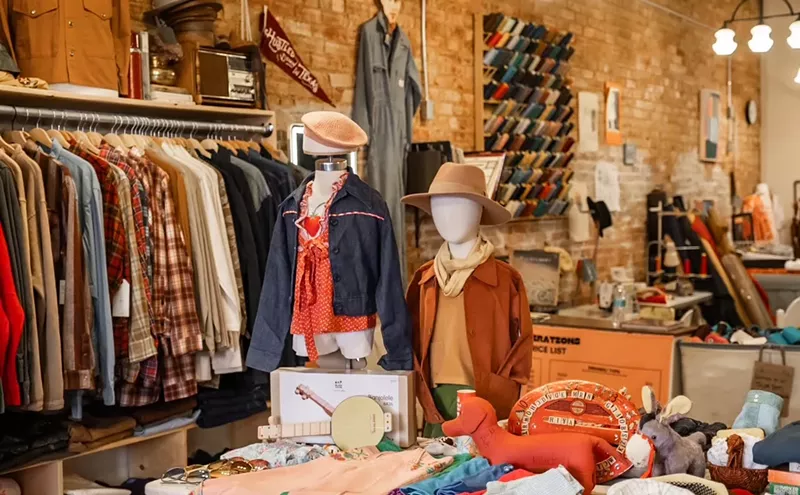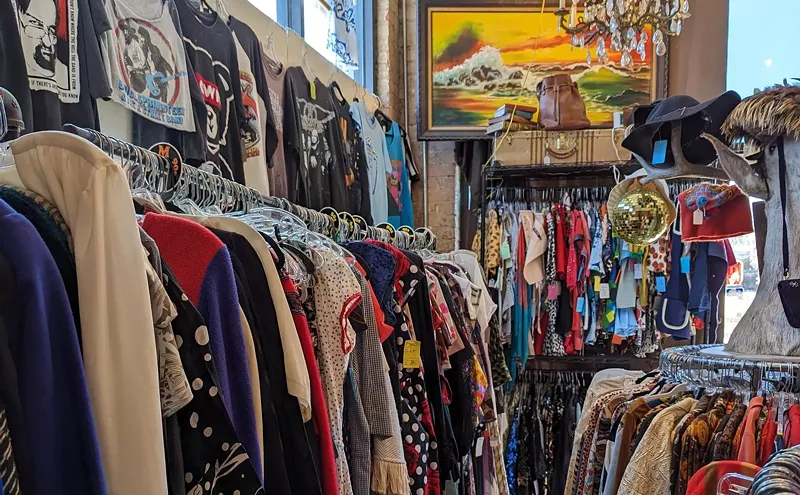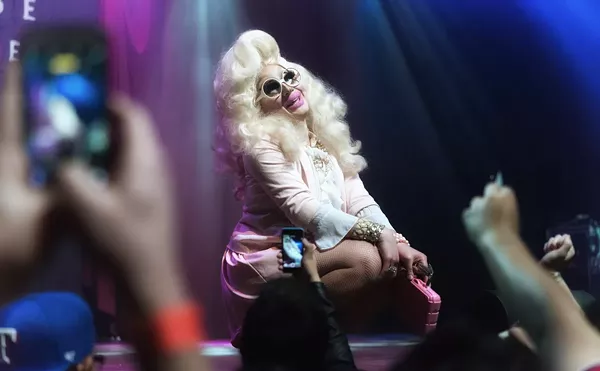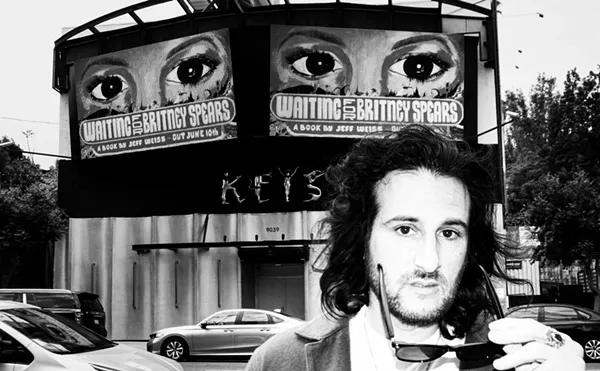Shark Tank has also attracted a fair amount of attention to Dallas, and not just because one of the investors or “sharks” is Dallasite Mark Cuban. A number of local entrepreneurs have gone on the show, and while they report some of the deals negotiated on air fall through, most of them feel the show benefited their careers. We talked with four of them about life before, during and after the show.
Company: Toor
Website: toor.today
Founder: Junior Desinor
Terms: $200,000 for 10 percent
Sharks: Barbara Corcoran and Kevin O’Leary
Air Date: November 2016
Dallas native Junior Desinor is only in his early 30s, but he’s already logged 15 years in the real estate industry. As a freshman at Texas Tech he partnered in a successful party supply company, and used the profits to transition into flipping houses. “I always loved real estate; at that time all of those home remodeling and house flipping shows were really popular and I thought it was something I could be successful at,” Desinor says. He flipped his first property when he was 18 and went on to oversee multiple real estate deals throughout college.
After graduation, the fledgling real estate mogul moved back to Dallas, became an agent at Keller Williams and then opted to strike out on his own as founder of Level Properties in 2010. When he learned how complicated it could be to coordinate clients’ schedules, he came up with the idea for Toor. “The challenge for most agents is that there’s only so much time in the day,” he says. “You’ll have clients who are interested in buying homes and sometimes you can’t meet with all of them during peak viewing hours.”
He knew if he could solve this problem his clients would be happier and he’d also maximize the earning potential for real estate agents. Toor is a digital lockbox and app that allows potential buyers to view properties without the presence of an agent or property owner. The client requests access to the property via the app and the agents or property owner can grant or deny access along with monitoring the duration someone is on the property.
Unlike most tech-based start-ups, Desinor decided against seeking out venture capitalists to launch his new business. “I wanted to maintain creative control and be able to determine the direction of the company, so I decided to finance Toor myself,” he says. “I figured I’d be better off working extra and selling a few more houses to help finance my company. We also utilized Kickstarter to help get things off the ground.”
Toor’s 2016 campaign on Kickstarter lasted from April to May and secured over $100,000. In late August, Desinor decided to attend the open audition for Shark Tank in Atlanta. It happened to be the last open audition of the year and Desinor and Toor were selected out of a pool of more than 4,000 Shark Tank hopefuls.
There was no time to bask in the accomplishment, as Desinor was given less than a month to prepare before presenting to the sharks. “The turnaround from audition to pitch was pretty quick in my case since it was the last audition of the year,” he says. “The producers work with you to help make sure you’re prepared. But I didn’t want to over-prepare. I think when people do that sometimes you can lose yourself in the preparation. I relied on knowing my product and decided to just be myself.”
Desinor’s polished and self-assured approach wowed the panel of sharks. He received compliments on his salesmanship and Mark Cuban and recurring guest shark Chris Sacca got into a lively debate about Toor after his pitch. Ultimately Desinor partnered with “Mr. Wonderful” (Kevin O’Leary) and Barbara Corcoran. “It’s been great getting to work with both of them. It really helps having someone like Barbara on board because we come from the same background and speak the same language, but Kevin has been amazing as well,” Desinor says.
He’s still running Level Properties and is gearing up for the official Toor product launch, which is scheduled for spring/summer 2017. Pre-orders are currently being taken on the company’s website.
Company: Foot Cardigan
Website: footcardigan.com
Co-Founder: Bryan DeLuca
Terms: $250,000 for 20 percent
Sharks: Mark Cuban and Troy Carter
Air Date: October 2015
Bryan DeLuca is a Norman, Oklahoma, transplant who honed his brand-building acumen as a digital marketing and advertising executive for several years, before becoming the CEO of Foot Cardigan. While on a three-month European vacation with his wife, DeLuca failed to pack enough socks, and he found the easiest way for him to replenish his supply was by purchasing a 10-pack of novelty socks. Shortly after that, a lightbulb went off.
“Like everyone in the world, I saw the Dollar Shave Club video back in 2012,” he says. “I was really intrigued with the subscription idea. We did a bunch of testing to make sure people wanted what we were making and it turns out they did.”
Within three months of conceiving the business, DeLuca had Foot Cardigan up and running. With the help of four other partners, Matt Fry, Tom Browning, Matt McClard and Kelly Largent, he began selling socks with funny designs online. Most of the team were married with children and in the beginning they all kept their full-time jobs, so time management was challenging at first. But by 2015, Foot Cardigan was profitable and they felt ready to take it to the next level on Shark Tank.
“It was super intense,” DeLuca says of the audition process. “There are two ways to apply: in person and through email. We sent an email and got a call back. From there, we had a ton of calls, contracts and rehearsals. Pitch day was really exhilarating and nerve-racking but the production team was really amazing. They try to calm you and get you through as best as possible.”
DeLuca and McClard took on the responsibility of delivering the pitch. Deal or no deal they were determined to make an impression on the sharks and viewers. Upon introducing themselves to the panel they promptly shed their pants and gave the presentation in boxers and colorful samples of their product. “I think it was my wife that came up with idea,” DeLuca says. “We didn’t want to walk out in shorts and socks because we thought that would be lame. So we said, ‘What if we ripped our pants off instead.’ So we had these special pants tailored to tear away and stood there in our skivvies. I was actually wearing three layers just in case.”
By the end of their creative presentation, Foot Cardigan landed a deal with Mark Cuban and guest shark Troy Carter. “Once we were done I cried,” DeLuca says. “It was over and just beginning all at once.” He stayed up until 3 a.m. that night replying to emails and socializing with friends and family.
After the show there’s an intense process to finish the negotiations, which can last for weeks or even months. During this period Cuban, Carter and Foot Cardigan ultimately decided not to move forward with the partnership. “There’s more to the deal than just money. In the end, we weren’t able to agree on certain details and left the negotiation table amicably,” DeLuca says. “Mark reached out after the deal fell through and offered his help if needed but I haven’t taken him up on it as of yet.”
Although Foot Cardigan didn’t finalize the proposed deal with Mark Cuban and Troy Carter, business is healthy and DeLuca says they’ve experienced exponential growth during the five years they’ve been in business. In their first year, 2013, they generated $250,000 in sales. In 2016 he says their revenue was $2.5 million.

Latangela Newsome gives the sharks a taste of her chicken wings, and how she disposed of the cooking grease.
Shark Tank screenshot
Website: greasebags.com
Founder: Latangela Newsome
Terms: $75,000 for 25 percent
Shark: Barbara Corcoran
Air Date: December 2016
Every so often there’s a Shark Tank contestant who’s made for the camera. Allen resident Latangela Newsome is one such person; she was able to win the sharks over with her charisma as well as her product. The self-proclaimed “Monsterpreneur,” a moniker she coined specifically for her Shark Tank appearance, comes from a diverse background which she says helped her prepare for TV.
Newsome was born in Germany, and has also lived in Turkey and Saudi Arabia due to her father’s career in the military. While living in Saudi Arabia, Newsome said she felt her calling was to work in the entertainment industry, so with her father’s blessing she moved with her mother to New York where she lived from middle school up until she went to college. She landed several acting gigs, including a co-starring role on Nickelodeon’s Taina, which began airing in 2001.
About five years ago Newsome moved to Texas to be near family. “I was living in Florida and came to the DFW area because my brother lived here,” she says. “I have another brother in Austin and I wanted to be near family because I have a son, who is 14 now. I cook often and it became a problem because I used to put excess grease in the trash and it would leak out.”
This created tension between Newsome and the sanitation workers at her apartment complex so she began to think of ways to solve her problem. “I started doing research in 2015, and once I created the formula my family and I moved forward with securing the patents,” she says.
Grease Bags is a biodegradable, eco-friendly bag used to dispose of cooking oil as well as industrial lubricants. “I’m a Shark Tank fanatic and I said to myself, ‘This is something I think I could get on the show,’” she says. But Newsome was forced to kick preparation into overdrive when she discovered the next audition was in two weeks.
One immediate obstacle? She didn’t have a proto-type yet. “I knew I was really early, but I couldn’t see myself not going to the audition. So I figured if I don’t make it, fine I’ll go next year,” she says. “Because we had to rush the prototype it was really expensive because it’s a complex process to create the bags. The cost came out to about $550 per bag. I got them the night before the open call.”
The day of the audition, the line was double-wrapped around the American Airlines Center and some people had slept there overnight. “The first thing they tell you at the audition is to not come in saying that you have something we’ve never seen before because we’ve seen it all,” Newsome says. “When I was doing my pitch one of the producers perked up and asked me, ‘Is there nothing like this already?' And when she said that I knew I had it.”
Newsome didn’t have experience creating business plans and she didn’t have much time to come up with one, either. “I needed help on the business side. I was looking for a SBA [Small Business Administration] office near me and I found a subsidiary that operates through Collin County Community College called the Small Business Development Center. They have an amazing program where you can tell them what you’re working on and they’ll connect you with someone they think would be good for you,” Newsome said. “My business advisor is Keith Otto and he has been amazing. He taught me about how to construct my business model, projections, trademarks and forming an LLC. Any question I have I can always go to him and I really want to share this with everyone because I didn’t have money to pay for this type of assistance and his help has been essential.”
After traveling to Los Angeles to pitch to the sharks, Newsome spent 24 hours fine tuning her presentation, hair and makeup, and cooking chicken wings for the sharks. “When I did my pitch I wasn’t in there very long. The entire thing was a blur,” she says. “When they started going out one by one I didn’t panic but I was surprised. I was like, ‘Is that everybody … no it can’t be.’ Then when Barbara came back in I was so excited. I would have been happy with any shark but I just didn’t think Barbara would be as into it. When it was over I felt like I could finally exhale. I was exhausted and that’s when you saw the emotions come out.”
Newsome shed tears of joy during her post-pitch interview. She said it was important for her to go through this experience to show her son that he can achieve anything. Grease Bags is expected to hit the market May of this year. In the meantime Newsome has begun coaching others on forming business plans and delivering presentations. She’s also working with the Allen Economic Development Corporation and will be involved in numerous speaking engagements through their organization.
Company: Villy Customs
Site: villycustoms.com
Founder: Fleetwood Hicks
Terms: $500,000 for 42 percent
Sharks: Barbara Corcoran and Mark Cuban
Air Date: February 2011
If Shark Tank had a hall of fame, Dallas native Fleetwood Hicks would be a top candidate for first ballot induction. He appeared on the show six years ago, when Shark Tank was just beginning, to promote his custom cruiser bike company. Villy Customs, named after his pet bullmastiff, has since grown to cater to international clientele.
Hicks’ primary line of work has been designing graphics and apparel. He became a bike enthusiast late in life, on a business trip to California. “It all started for me with a simple bicycle ride,” he says. “I had an extra day off so I rented a cruiser bike and took a ride on Venice Beach. I was only supposed to be gone an hour and the owner of the rental shop was extremely mad at when I returned because I had been gone six hours. The experience was really cool. I didn’t want to ride fast because I realized riding a bike was a good way to take in the sights around you.”
When Hicks returned to Dallas he bought a bike of his own and began cruising around downtown. In a short period of time he had five bikes and turned his riding expeditions into social events, inviting friends to come along with him. His peers urged him to take the newfound hobby a step further. “My friends were like, ‘You should open up a cruiser bike shop,’ and I thought it was a good idea,” he says. “I wasn’t worried about making money at first. I just wanted to do something fun.”
Hicks opened a small shop on Mockingbird Lane near Southern Methodist University called Fleetwood’s Kit Kat. However, he was unaware of unspoken bicycle industry protocol that dictates you’re not supposed to open a storefront within a certain distance of another shop. At the time Hicks was only selling one brand. A larger bike shop nearby which had three locations and sold a lot of bikes threatened to discontinue orders from the company that was Hicks’ sole supplier, so the company caved and cut off the supply to Hicks’ shop.
Out of necessity, Hicks decided to design bikes himself. The end result had a sleek look and vibrant color palette and it was a hit with customers. “To this day I don’t know how it happened but Entrepreneur Magazine wrote up a piece about my concept for a story called 100 Brilliant Business ideas for 2010,” Hicks says. “I got a call one day in 2011 from a producer with Shark Tank. I had no clue what Shark Tank was. He said they were really intrigued by my business and they wanted to know if I’d be interested in being on the show. Without really knowing exactly what it was I said, ‘Sure, I’ll do it.’”
Hicks was still required to audition, but he got the VIP treatment in that he got to bypass the line, give his pitch and leave. A month later he found out he was selected to be on the show and the preparation stage commenced. “You practice your pitch back and forth with the producers several times,” he says. “I would also do my presentation for friends and get honest critiques from them and if I hadn’t done that I probably would have sucked on the show.”
Hicks decided to make it a road trip and drove from Dallas to L.A. with his dog. The day before shooting, all contestants go before producer Mark Burnett and his entire staff. “Once you get there they kind of sequester you in this big warehouse. They let you know if you break down or fold here in front of Burnett you can get eliminated from the show. All I remember is all of these strangers sitting at long lunch tables and everyone has their laptop up staring at you,” Hicks says. “When I walked in I had to stare at the sharks for a couple of minutes, then they give you the final countdown. When they get to 1 you start and there are no re-dos.”
Villy Customs tied that season for the largest financing deal issued by the sharks. Hicks says Mark Cuban and Barbara Corcoran have provided the perfect yin and yan as partners. “My relationship with Mark has been more-so strictly business. ... But with that said, he’s been the most giving guy as far as doing things monetarily. He’s paid the production cost for commercials and involved us in a lot of marketing and PR events. ... Barbara has been really supportive and encouraging both in business and personally. I’ve been to both of her beach houses, a group of us went on a skiing trip, I’ve been to all of the All-Star retreats she does, so I’ve been able to connect with her on a more personable friendship level. Both of them have amazing teams under them and have always been available for anything we’ve needed.”
Villy Customs has since formed a foundation for children with cancer. Every month the company donates a bike and throws a surprise birthday party for the child who’s selected. Since the show, they’ve also done a lot of business with Fortune 500 companies. Before Hicks went on Shark Tank, sales were at $125,000 annually, and now they’re at $1 million a year.















